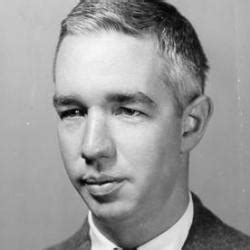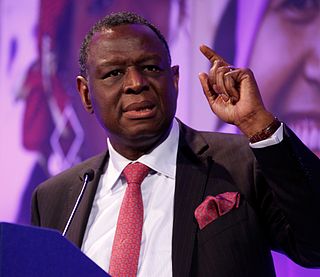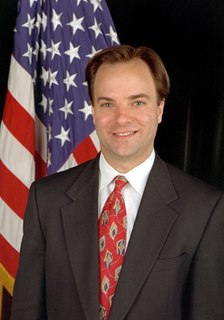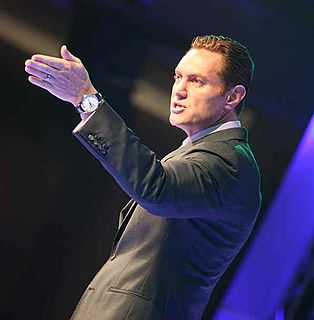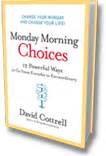A Quote by Jared Diamond
Two types of choices seem to me to have been crucial in tipping the outcomes [of the various societies' histories] towards success or failure: long-term planning and willingness to reconsider core values. On reflection we can also recognize the crucial role of these same two choices for the outcomes of our individual lives.
Quote Topics
Related Quotes
Given our inevitably incomplete knowledge about key structural aspects of our ever-changing economy and the sometimes asymmetric costs or benefits of particular outcomes, a central bank... need to consider not only the most likely future path for the economy but also the distribution of possible outcomes about that path. They then need to reach a judgment about the probabilities, costs, and benefits of the various possible outcomes under alternative choices for policy.
People really don't like to hear success explained away as luck — especially successful people. As they age, and succeed, people feel their success was somehow inevitable. They don't want to acknowledge the role played by accident in their lives. There is a reason for this: the world does not want to acknowledge it either. If you use better data, you can find better values; there are always market inefficiencies to exploit, and so on. But it has a broader and less practical message: don't be deceived by life's outcomes. Life's outcomes, while not entirely random, have a huge amount of luck baked into them. Above all, recognize that if you have had success, you have also had luck — and with luck comes obligation.
An important purpose for mortality is to help us learn to recognize and to choose the positive even though the negative more fully surrounds us. We make this choice consciously or unconsciously in every moment of the day, and these millions of tiny choices create the foundation of our identity. We are what we think. We are what we say, what we do, what we fill our lives with. Ultimately, every being creates himself by these countless, crucial choices.
Expected outcomes contribute to motivation independently of self-efficacy beliefs when outcomes are not completely controlled by quality of performance. This occurs when extraneous factors also affect outcomes, or outcomes are socially tied to a minimum level of performance so that some variations in quality of performance above and below the standard do not produce differential outcomes
The modern joint stock firm is the outcome of innumerable decisions made by individual entrepreneurs, owners and managers. For these decision makers the choices among alternatives were limited and the outcomes uncertain, but almost always there were choices. Despite the variability of these individual decisions, taken cumulatively they produced clear patterns of institutional change
Once you accept the fact that people have 'individual choices' and they're 'free' to make those choices. Free to make choices means without being influenced and I can't understand that at all. All of us are influenced in all our choices by the culture we live in, by our parents, and by the values that dominate. So, we're influenced. So there can't be free choices.
How can we trace out the links between actions that people take today and really long-term outcomes for humanity - outcomes that stretch out indefinitely into the future? I call this effort macrostrategy - that is, to think about the really big strategic situation for having a positive impact on the long-term future. There's the butterfly effect: A small change in an initial condition could have arbitrarily large consequences.
We can all make powerful choices. We can all take back control by not blaming chance, fate, or anyone else for our outcomes. It’s within our ability to cause everything to change. Rather than letting past hurtful experiences sap our energy and sabotage our success, we can use them to fuel positive, constructive change.
If you look at the India-US relationship for example, the role that the Indian diaspora has played in the relationship is extremely crucial. Yes, we share democratic values but there is also the great role that the Indian diaspora has played in strengthening the bond of friendship between India and the US, and of course in underscoring the democratic values between the two countries.
It is increasingly obvious that environmentally sustainable solutions to world hunger can only emerge as people eat more plant foods and fewer animal products. To me it is deeply moving that the same food choices that give us the best chance to eliminate world hunger are also those that take the least toll on the environment, contribute the most to our long-term health, are the safest, and are also, far and away, the most compassionate towards our fellow creatures.





